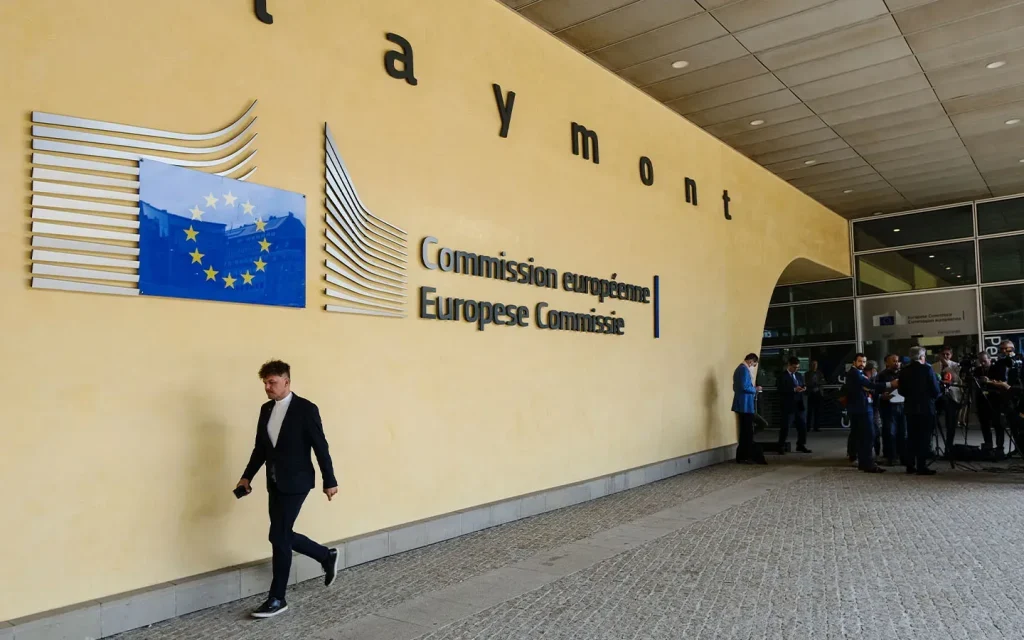The Stop Killing Games movement has gained significant traction in recent years, aimed at addressing the critical issue of game preservation in the ever-evolving digital landscape. As players witness the abrupt shuttering of beloved titles, the debate intensifies around the ethics of game servers, especially following events like the closure of *The Crew* by Ubisoft. CEO Yves Guillemot acknowledges this challenge, asserting that while games provide a service, they are not designed to endure forever. This sentiment raises important questions about the sustainability of digital entertainment and the responsibilities of companies like Ubisoft in safeguarding their creations. With ongoing discussions among industry leaders and advocacy from organizations such as Video Games Europe, the movement underscores the urgent need for policies that prioritize game preservation.
The movement advocating for the continued availability of digital games has sparked lively discussions about the fate of older titles and the principles of their stewardship. This initiative, often referred to as the campaign against game shutdowns, challenges the decisions of game developers and publishers to take popular titles offline after just a few years. As major companies, including Ubisoft, navigate this terrain, the implications of their actions impact both players and the broader gaming community. The dialogue about video game preservation brings to light the ethical questions surrounding discontinuing access to products already purchased by consumers. Ultimately, the conversation ignites a deeper exploration of what it means to truly support dedicated player bases in an industry driven by constant change.
Understanding the Stop Killing Games Movement
The Stop Killing Games movement emerged from growing frustrations among gamers regarding publishers’ decisions to cease support for older titles. Founded by YouTube host Ross Scott, the movement gained momentum after Ubisoft’s controversial shutdown of *The Crew*. This has sparked discussions about the ethical responsibilities of game publishers and their accountability to consumers who have purchased these titles. Many players feel betrayed when a game they invested time and money into is suddenly made inactive, leading to calls for better preservation strategies from major developers.
Supporting the movement is not just about nostalgia; it taps into larger concerns about the future of game preservation in an industry that values digital over physical. As technology advances, the fate of older titles often hangs in the balance, especially when considering the ethics of game servers and their discontinuation. Players argue that once a game is sold, the publisher should consider maintaining access for its community, raising important questions that both public influencers and entities like Video Games Europe are now addressing.
Ubisoft’s Stance on Game Preservation
During a recent shareholders meeting, CEO Yves Guillemot publicly addressed the growing concerns surrounding game preservation. He emphasized the reality that ‘nothing is eternal’ in the gaming world. As the face of Ubisoft, Guillemot’s comments reflect the company’s delicate position within the industry and the pressures they face from initiatives like Stop Killing Games. Despite aiming to provide seamless service, he acknowledged the practical difficulties in maintaining server operations for all games indefinitely.
Guillemot’s statement illustrates a broader challenge within the industry, where game publishers must balance player expectations with business viability. Ubisoft’s situation is reminiscent of other publishers facing criticism for terminating online services. The backlash has forced companies to reconsider how they approach older games, making it clear that sustainable solutions for game preservation must be part of any future strategy in this rapidly evolving landscape.
The Ethics of Gaming Servers and Consumer Rights
As the Stop Killing Games movement continues to provoke conversation, the ethical implications of shutting down game servers come to the forefront. Players argue that when they purchase a game, they are also buying access to a service that should not arbitrarily end. This has led to more individuals questioning the legality and morality behind such drastic measures. With the rising power of consumer advocacy groups, companies, including Ubisoft, are increasingly scrutinized for their decisions regarding online game support and the preservation of digital content.
Moreover, the ethics surrounding these decisions challenge publishers to rethink their commitment to long-term player engagement. Issues of accountability arise when considering the impact on the gaming community—especially from beloved franchises. Discussions about the longevity of game servers intertwine with players’ rights, leading to a crucial dialogue about not only preserving popular titles but also ensuring that end-users feel respected in their investments.
Video Games Europe’s Perspective on Game Preservation
Video Games Europe, a lobbying association, recently voiced concerns regarding the implications of the Stop Killing Games movement. They contend that implementing some of the proposed changes might impose substantial financial burdens on developers, paradoxically leading to a situation where fewer games are produced. This viewpoint illustrates an ongoing tension between the desire for long-term game accessibility and the economic realities faced by the gaming industry today.
The association’s insights highlight the complexities of game preservation debates. They urge nuanced discussions that consider both developer needs and consumer rights. Ensuring the creation of innovative games while advocating for preservation is a challenging balancing act that requires collaboration as well as understanding between players and companies like Ubisoft, especially in the context of legislative environments.
The Future of Game Preservation and Community Impact
As the industry evolves, the future of game preservation is increasingly vital. Players today are advocating for more robust policies that protect their access to older titles, reflecting a proactive community driven by the philosophical question: Shouldn’t buyers retain access to what they’ve purchased? Initiatives motivated by movements like Stop Killing Games can fundamentally reshape practices surrounding game servers and longevity in the industry.
Consequently, this growing focus on preservation could influence how games are developed and supported in the years to come. By adopting practices that ensure older titles remain available to players, companies may not only enhance their reputations but also foster loyalty within their user base. Balancing business interests with ethical considerations can lead to sustainable growth and community engagement in the long run.
Navigating the Controversies of Game Support Discontinuation
The discussion surrounding the discontinuation of game support is fraught with controversies and diverging opinions from players, developers, and industry stakeholders alike. As seen in the case of Ubisoft’s termination of servers for *The Crew*, the outcry emphasizes how these decisions can feel like a betrayal to dedicated fans. Each shutdown sends ripples through the gaming community, provoking broader conversations about what it means to own a digital game in an era where physical copies are dwindling.
Developers, meanwhile, face the dilemma of maintaining older games with constrained resources. Balancing support for new releases against the obligation to keep prior titles running creates financial and logistical challenges. Consequently, transparency and communication practices are essential, as companies like Ubisoft engage with communities that are deeply invested in preserving gaming history.
The Role of Consumer Advocacy in Game Longevity
Consumer advocacy has emerged as a critical force in shaping industry standards around game longevity. Activists and organizations are working tirelessly to ensure client voices are heard when it comes to decisions that involve the lifeline of digital games. As we see with the Stop Killing Games movement, advocates are not merely calling for the maintenance of old titles but are also demanding accountability from publishers regarding ethics in server management and game support.
By uniting under a common purpose, players are collectively insisting that their concerns cannot be overlooked. This empowerment among the gaming community reflects a significant shift in dynamics, where consumer interests now influence corporate strategies more than ever. Companies will need to adapt, not only to survive economically but also to stay relevant among an audience that seeks genuine engagement and respect.
Impact of Lawsuits on Gaming Company Strategies
As Ubisoft navigates the aftermath of lawsuits concerning game server shutdowns, the implications stretch beyond mere legalities into the strategic sphere of gaming companies. Legal battles over the Stop Killing Games movement signal potential financial and reputational risks for publishers, prompting them to reconsider how they manage their game offerings—especially as concerns over ethics loom large.
The interplay between player expectations and legal frameworks forces companies to develop more robust strategies aimed at fostering a sustainable gaming ecosystem. Ubisoft’s approach may very well set a precedent for other publishers, particularly as the scrutiny on long-term game support heightens and gamers demand more explicit commitments to preserving their gaming legacies.
Evolving Consumer Expectations in the Digital Age
In the fast-paced digital age, consumer expectations are evolving, particularly where game longevity is concerned. Gamers are not only purchasing games for immediate enjoyment but are also considering their lasting value and accessibility well into the future. This shift is prompting companies like Ubisoft to reassess how they approach game lifecycle management and customer service, as players increasingly seek guarantees that their investments will not vanish overnight.
The urgency of maintaining older titles resonates strongly amongst dedicated fans and casual players alike, reinforcing the importance of fostering transparent lines of communication. These expectations reflect a broader societal trend where consumers demand accountability and long-term support from services they subscribe to, marking a crucial challenge for companies striving to retain relevance in a constantly changing landscape.
Frequently Asked Questions
What is the Stop Killing Games movement and why is it important for Ubisoft?
The Stop Killing Games movement seeks to address concerns over game preservation, particularly in light of Ubisoft’s decision to shut down servers for titles like *The Crew*. This movement emphasizes the need for ethical considerations regarding the termination of online services for games that consumers have purchased.
How did CEO Yves Guillemot respond to the Stop Killing Games movement?
During a recent shareholders meeting, CEO Yves Guillemot acknowledged the Stop Killing Games movement, stating that while nothing lasts forever in gaming, Ubisoft is committed to addressing the challenges of game preservation and minimizing the impact on players, suggesting a need for a balanced approach to server management.
What are the implications of stopping servers for games like *The Crew* by Ubisoft?
Shutting down servers for games like *The Crew* raises legal and ethical questions about ownership and access for players who have purchased these titles. The Stop Killing Games movement advocates for consideration of players’ rights in the face of business decisions made by publishers.
What arguments does Video Games Europe present regarding the Stop Killing Games suggestions?
Video Games Europe argues that the suggestions proposed by the Stop Killing Games movement could limit developers’ choices, potentially resulting in higher costs and making it prohibitively expensive to create older games. This highlights the balance between preserving games and ensuring a viable business model for developers.
What does ‘game preservation’ mean in the context of the Stop Killing Games movement?
Game preservation refers to the efforts to keep older video games accessible and playable over time, a key component of the Stop Killing Games movement. It emphasizes the importance of maintaining online services for games so that players can continue to enjoy their purchases without disruption.
How does Ubisoft’s approach to game servers reflect broader industry challenges?
Ubisoft’s handling of game servers, particularly in relation to the Stop Killing Games movement, underscores a larger industry challenge in balancing the longevity of games with economic realities. This ongoing debate raises critical questions about the future of game preservation in the gaming landscape.
What are some recent examples of games affected by server shutdowns like those highlighted in the Stop Killing Games movement?
Recent examples include Ubisoft’s *The Crew*, which faced server shutdowns leading to the rise of the Stop Killing Games movement, and BioWare’s *Anthem*, which is also slated to be taken offline. These cases highlight ongoing concerns regarding the treatment of older games by publishers.
| Key Point | Details |
|---|---|
| Ubisoft’s Position on Game Preservation | CEO Yves Guillemot acknowledges that no game service lasts forever, emphasizing that some titles may be discontinued. |
| Stop Killing Games Movement Origin | Launched by YouTube host Ross Scott following Ubisoft’s shutdown of *The Crew*. |
| Industry Impact of Stop Killing Games | The movement raises legal and ethical concerns regarding publishers’ ability to terminate games post-sale. |
| Challenges Highlighted by Ubisoft | Guillemot states the industry is working to minimize the impact on players and to address challenges in game support. |
| Other Companies’ Actions | Similar shutdowns are occurring across the industry, such as BioWare’s *Anthem* and Sony’s *Concord*. |
Summary
Stop Killing Games addresses a pressing issue in the gaming industry— the permanence of game services. As game publishers, like Ubisoft, face scrutiny over shutting down servers for titles like *The Crew*, the movement challenges the norms surrounding games that consumers have already purchased. With Yves Guillemot’s remarks highlighting the ephemeral nature of game support, it becomes increasingly clear that the industry must balance its operational decisions with player rights. The conversation initiated by Stop Killing Games is vital in advocating for more sustainable models of game preservation, ensuring that players can continue to enjoy their digital investments long after purchase.



